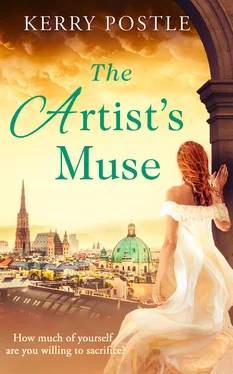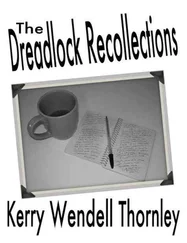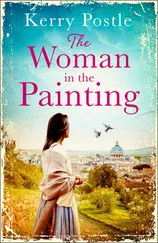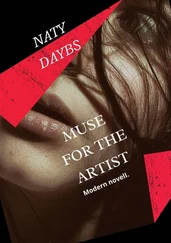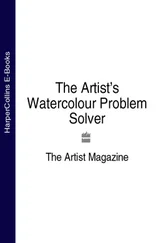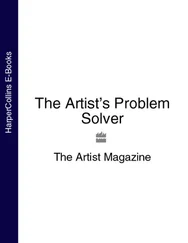‘Frau Wittger?’ my mother asks, her voice rising with trepidation: worried that she is, worried that she isn’t.
‘Oh, Oh!’ She pushes the old man with the flask out into the street and we part like the Red Sea as she shoos him on his way. He leaves a sour smell and goes without a struggle, more intent on checking the contents of his flask every other second. He’s forgotten he’s just emptied it down his throat. Sway, swig, puzzled expression. Sway, swig, what? There’s none left?
‘Same time next week, Wittgi?’ he shouts behind him, not hanging round for a reply.
‘Oh!’ The old woman puts one hand to her hair then brushes the front of her skirt with the other, just like Mama used to do when we had visitors. Before father died. ‘Frau Wittger,’ the woman says, ‘that’s me.’ And then, with hushed embarrassment, she leans closer to Mama and whispers, ‘You won’t be seeing him again.’
At this I notice my mother sway a little. I put out my arm to steady her. I fear she’s growing weaker and I have visions of my sisters floating away untethered for want of a mother to hold them in place. Twelve and 12. It’s my time. I can do this. I push them in front of me, Katya included, as I am the eldest, extending my arms around the shoulders of the two younger ones to give strength to their sapling limbs.
Katya copies me, which I don’t begrudge on a day like this. Together we cross and link limbs in an intricate, delicate way. We will be strong together, my sisters and I.
A broad smile stretches out the wrinkles of Frau Wittger’s face, which softens at the sight of us. ‘Oh, such little ones. Such lovely, lovely little ones. Come in, my dears. Look at you all. Oh, my dear girls. Come in. Come in.’
She nods a welcome to me, then Katya, before bending down and taking Olga and Frieda by the hand. I first think her overly clucky, like a broody hen, but as I see my little sisters relax, catch the relief sweeping across Mama’s face, I am soon grateful for the gentleness this stranger brings, and for the excess of warmth with which she tries to thaw us. ‘Oh, you poor dear mites, you’re frozen,’ she cries, as she beckons us inside.
She leads us to our room at the top of the house. We follow in silence, pulling on heavy bags while I clutch tired hands. ‘If you need anything …’; ‘if you get any trouble …’ She bombards us with kindness and offers of help we’ll never remember.
And as we make our way up creaking stairs, and along dark corridors lined with closed doors, she lights up this new and shadowy world with the exuberance of her voice, wraps us in the warmth of her words so that we feel protected from the harsh shouts and coarse laughter that come from the rooms along the way. Though Mother asks, ‘Are we your only guests?’
‘A key, look here, you’ve got a key,’ she pants when she gets to our room at the top of the house. There is a lock, and with a rattle and twist of the key we are in. A sharp blast of icy air hits us. I look at Mama.
Frau Wittger looks to heaven. ‘Oh, it’ll soon be warm, once you makes yourselves all comfortable up here!’ she wheezes, more in hope than belief, and with that she abandons us, taking her optimism with her.
The room is miserable, with a bare wooden floor, its discoloured curtains drawn, drawn to conceal a broken windowpane I discover when I go to open them. Cold air comes in through the cracked glass, causing the curtains to flap around.
Katya tells Mama what she should do: leave, move, go back, say to Frau Wittger … But I know that’s the wrong thing to do. I know that Mama has no choice. Not one of us has any choice other than to stay here, and we’re lucky Frau Wittger’s such a good, kind soul.
I look at the bed and I’m about to suggest to Mama that she go and have a rest in it when there’s a knock on the door. It’s Frau Wittger, now quite flushed, perspiration around her nose and across her forehead. She’s made her way back up the stairs. It hasn’t been easy for her. And there, tucked under one arm, she has the prettiest white bedcover, embroidered with the daintiest of pink rosebuds. Dangling from the other arm is a basket so heavy she puts it down the minute I open the door.
‘For you and your mam,’ she says, offering the bedcover to me. As soon as I take it, she holds her side, clearly in physical discomfort, before bending down to pick up the basket. Once inside, she closes the door and sets the basket down. She hugs Mama before leading her to the bed and helping her to remove her boots.
‘Lie down and rest, dear,’ she says soothingly, though Mama casts a look of anguish over her daughters in protest. ‘That’s why I’m here,’ she assures her softly. ‘Now cover your dear mam up with that cover, why don’t you, girl,’ she tells me. ‘Then you little ones can bring that basket over and we can see what’s inside.’ By the time Olga lifts the cake out, Mama is asleep.
Chapter 2
The first nine months are tough. To set the tone, Mama does not get out of bed for three weeks, and when she does she looks as though a noose has been placed around her neck. Exhausted, that’s what Frau Wittger tells us is the matter with her, but Mama’s not done a day’s work yet.
The elderly woman we’ve only just met cooks, cleans, and cares for us as if we’re her own.
Her rooms are on the same floor as ours and she opens them up to us with a joy that doesn’t blind us to Mama’s suffering but helps us see there’s something more. That Olga and Frieda play ‘searching’ in her drawers full of broken costume jewellery is a rare and unexpected pleasure for this woman with no children, as it is a welcome escape for the little ones from the groans our mother makes as she grapples with her own demons. She’s not a kind stranger for long.
The rent on the room’s been paid in full for the first three months by my father’s sister, Aunt Klara, and Mama’s grateful to Frau Wittger for, well, just about everything else. Having four daughters is not for the financially challenged, ironic considering that’s what Mama is. Even Frau Wittger, no matter how lovely she thinks we are, will soon be struggling to maintain the support she so wants to give us and which she’s under no obligation to provide.
Mama needs to get a job and so do I. I’m twelve, I live at number 12 Favoritenstrasse and I can do this. When I announce I won’t be going to school no one argues – not even Mama. Especially not Mama, when it turns out that the first job she herself gets is the wrong one. She takes it because it’s in a pretty building – all exotic. She thinks she’s crushing flowers when what she’s really doing is making insecticide. As she’s as delicate as a butterfly she was never going to last there for very long.
As Mama leaves I start, but I may as well have kept going round the revolving door as two weeks later I’m out. I’m underage. Someone reported me. Children must receive eight years of school. It’s the law. Who knew? From the number of children in the factory, not many. Mother’s been sentenced to eighteen hours’ imprisonment. That’s certainly tightened the rope around her neck. We’re all worried about her. I’ve just got to get another job. These are fast-changing times.
I go to school with the others for a month. Then I get another job, this time in a bronze factory where I work with the soldering irons. But they are powered by gas. Which makes me pale. Giddy. Ill. I have to see a doctor who tells my mother who’s weaker than me that I need a nourishing diet and plenty of fresh air (which is all that we have to live on).
Mama has lost one job. I have lost two. We’re wasting time, not earning money. Frau Wittger whispers to Mama about the workhouse, the very mention of which is as effective as a dose of smelling salts on her.
Читать дальше
